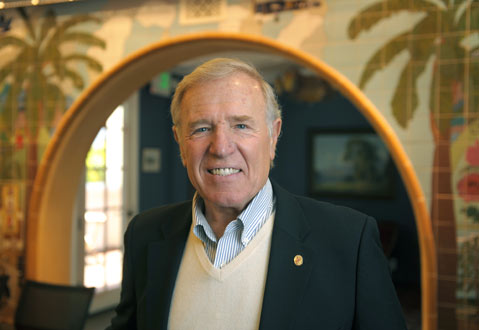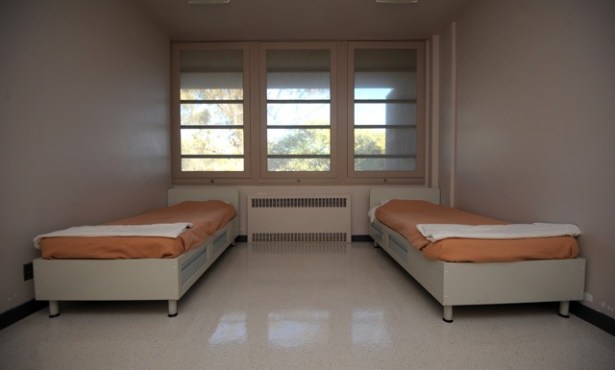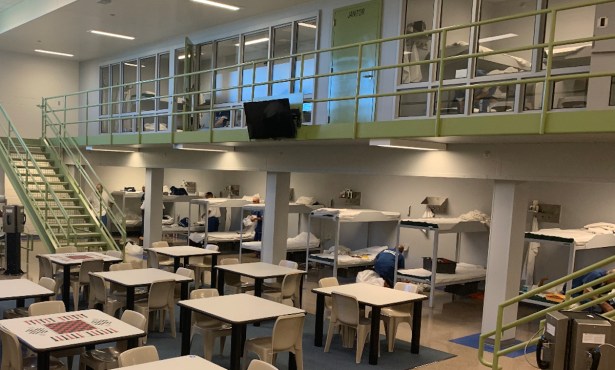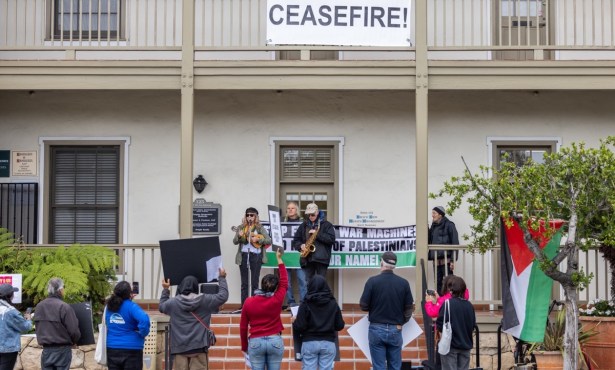Community College Crackerjack
How Peter Macdougall Set the Bar for Timely Graduation

As the New Year rolls in, Peter MacDougall will roll out of his four-year term on the 17-member Board of Governors of the California Community College System (CCCS). The former president of Santa Barbara City College (SBCC) did not seek the job, but when Chancellor Jack Scott personally asked him to serve, he couldn’t say no. So once a month, MacDougall has driven to the Burbank airport to embark on a three-day trip to Sacramento. He could fly from Santa Barbara, but there are no direct flights and the prices are prohibitive. “I don’t have to pay for it,” MacDougall told The Santa Barbara Independent in a recent interview, “but I feel like it would be mindless spending that money,” he said.
It would be especially so, considering that the state’s budget is a perennial mess and the community college system has undergone the fiscal equivalent of Lap-Band surgery over the past few years. Half a million students who otherwise would have enrolled in courses this year could not get the offerings they needed, exacerbating the 50-year-high number of Americans who are either not in school or unemployed.
That’s why MacDougall believes that his most important contribution to the board was chairing the Student Success Task Force, which issued a report last year with the goal of getting more students through community college in a timely manner. More than half of those who enroll in California community colleges don’t finish, and 70 percent are unprepared for college-level coursework in the first place. The task force lists 22 concrete recommendations for changing that dynamic.
For instance, priority registration is now given to students with the most credits, unintentionally rewarding those who are meandering their way through college and not necessarily those seeking a degree, certificate, or transfer. In the future, new students will be asked to undergo standardized assessments and to put together an educational plan. Students who complete that plan and then stay on track will jump ahead in the virtual registration line. Students will also be asked to declare a major by their third term, and those with more than 100 credits will lose priority registration status.
The report also asks for greater coordination between community colleges and K-12 education, calling for a K-20 data system that tracks student progress all the way from elementary school through their early years in the workforce. SBCC has already moved on this suggestion with a program called Get Focused … Stay Focused! that recruits 8th graders and puts them on track to start college with an educational plan in place and credits already completed.
For their part, colleges will be asked to tailor their course offerings to educational plans and industry needs. MacDougall pointed out that there is currently a mismatch between the workforce and employers. “It’s tough,” he said, to see young people either unemployed or underemployed, “especially when they do everything right.”
The CCCS’s emphasis on cold, hard results has squeezed out noncredit enrichment courses that are still technically funded by the state. But Jack Friedlander, SBCC’s executive vice president, told The Santa Barbara Independent that every time the college adds an Adult Ed course that is not basic skills, vocational, or ESL, it receives a letter from the CCCS Chancellor’s Office, and the letters may eventually turn into legislation. MacDougall commends SBCC on its establishment of the privately funded adult education entity called the Center for Lifelong Learning. A revolt by the Adult Ed community led to the replacement of four SBCC boardmembers who in turn ousted the college’s president. But, said MacDougall, any president would have had to make tough choices. “Who would not champion lifelong learning? That’s not the issue. Our means are limited, and we have to put priorities on things.
“This is a low point in terms of public education from top to bottom,” he said. “California is not providing the same opportunities for young people that it has historically provided.” A Rhode Island native, MacDougall took an unlikely path to the CCCS, which educates about a quarter of the entire country’s community college population. He started his career in college administration at Rutgers University, but when he told one of his favorite employees that he looked forward to a long working relationship, the employee informed him that he planned on leaving to work at a community college.
MacDougall said he had never considered that path before, but the idea of institutions with open enrollment that offered anybody a second chance really appealed to him. Before he knew it, he had found a job with Los Angeles Community College and started on a trajectory that would bring him to Santa Barbara and, eventually, to become a policy-setter for the entire state



